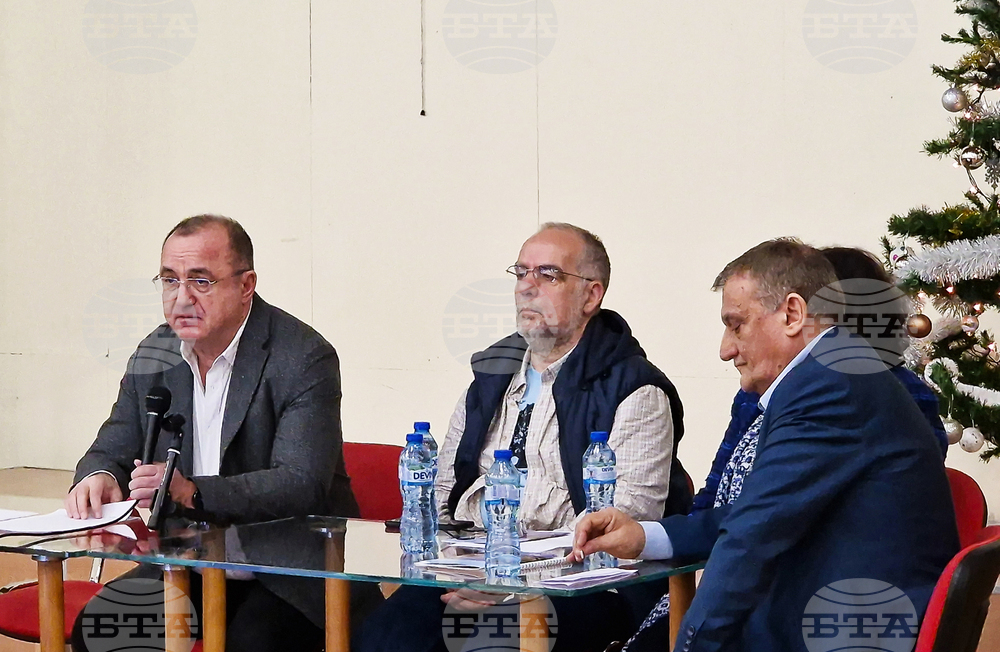site.btaImprovement of Transport, Water Infrastructure Among Challenges in Vitosha Nature Park


Part of the challenges in the Vitosha Nature Park are the improvement of the transport and water infrastructure, said various experts during the Vitosha - Time for Decisions conference here on Tuesday. The conference was organized by the Union of Architects in Bulgaria.
During the first panel of the conference, the main topic was the preservation and development of Vitosha Nature Park. Boris Milchev, legal adviser of the Chamber of Architects in Bulgaria, presented the regulations concerning the nature park, adding that the main law affecting it is the Protected Areas Act. He pointed out which bodies are responsible for the nature park, including the Environment and Water Ministry, the Environment Executive Agency, the regional inspectorates for the environment and water, the directors of the basin directorates, municipal mayors and regional governors. He emphasised that according to the Forests Act, the municipal and state properties on the territory of the nature park are public property, adding that the status of the roads located on the territory of the Vitosha Nature Park is an important issue.
Environmentalist and Green Movement Leader Toma Belev presented the development of the conservation values of Vitosha Nature Park. He stated that the expropriation of the forests on the territory of the nature park in favour of the state began in 1926, and in 1937 regulations for the implementation of the ordinance-law for the protection of native nature were adopted. In the 1950s, the functions of the park were recreation and sports for the working people and the youth. Later, the function for economic tourism appeared, when Bulgaria decided that tourism was profitable and began the construction of large resorts in the nature park. Belev pointed out that the Law on the Protection of Nature and the Regulations for the Implementation of the law were adopted in 1967. The same year hunting was also allowed. In 1981 the environmental protection committee issued an order canceling all those regulations and set new goals, one of them being the restoration and preservation of nature.
The existing structural challenges on the territory of the nature park were presented by Acting Director of Sofiaplan Georgeta Rafailova. The predominant part of the functioning buildings of public importance are those for public service, seven of which have the status of cultural monuments. She stated that transport infrastructure is very important and that motor roads, those on which urban transport moves, actually have the status of forest roads in the nature park. The electric transmission infrastructure on the territory of the park is of national importance, as it connects Sofia and Bobov dol, Rafailova pointed out. The water transmission facilities are of urban and regional importance as well. She stressed that the sewage infrastructure of the nature park is in a very bad condition and that the wastewater treatment plant is still not functioning, adding that the Rila water supply system, which passes through the nature park, is the main supply line for drinking water for nearly 400,000 residents of Sofia Municipality.
In total, there are more than 1000 buildings on the territory of the Vitosha Nature Park, with a large part of them unusable and some even crumbling, said the long-time expert in the Environment and Water Ministry Dimitar Stoev. He stressed that the tourist infrastructure in the nature park has not been maintained and has largely been completely depreciated in recent years. Tourists' access is disorganized and harmful to the environment, as there are unmaintained and eroded routes, he said. Stoev also noted that annually there are about 1.2 million visits to the nature park, with about 3100 overnight stays, adding that there has been a radical change in the way citizens use the nature park, with long-term tourism transforming into one-day tourism.
Economist Krassen Stanchev noted the low budget for the nature park and proposed that an access fee is set in place to help finance the park activities, as is the practice in other European mountain resorts.
/MY/
news.modal.header
news.modal.text